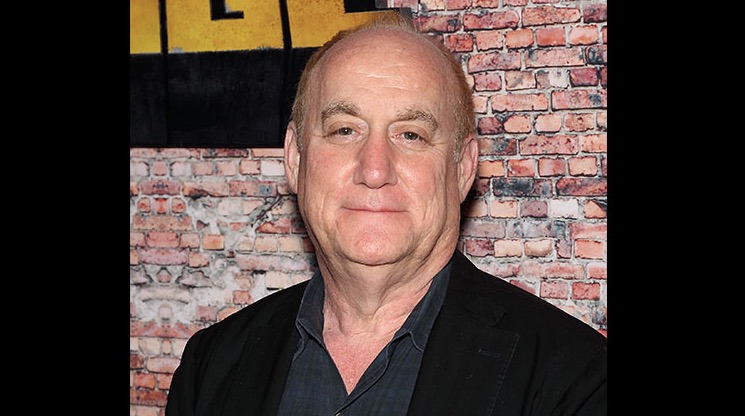The Five Spot: Jeph Loeb

The smarter way to stay on top of broadcasting and cable industry. Sign up below
You are now subscribed
Your newsletter sign-up was successful
Jeph Loeb oversees the growing stable of Marvel TV series, including Jessica Jones and Daredevil on Netflix, Marvel’s Agents of S.H.I.E.L.D. on ABC and upcoming series The Gifted on Fox and Marvel’s Cloak and Dagger on Freeform. As the shows shoot in Los Angeles, New York, New Orleans and other locations, Loeb is a very frequent flyer.
“I go where I’m needed,” he says.
Before taking on his Marvel role in 2010, Loeb’s career jumped between television (he was a writer/producer on Heroes and Lost), and comics, writing for Batman, Spider- Man and Iron Man.
Loeb and his TV team are “embedded” in the many Marvel shows. “We are actively producing — on set, in the editing room. We are there to support the vision of the showrunner.”
He spoke with B&C deputy editor Michael Malone about Marvel’s TV projects in development, and what makes a comic book character pop on television.
How many shows are you an executive producer on? I’d rather put it in terms of, Marvel Television is currently in either pre-production, production or postproduction on 14 series on six different platforms. What’s more remarkable is that, four years ago, we had just started [Marvel’s Agents of] S.H.I.E.L.D.
How does producing for Netflix compare to producing for broadcast TV? Marvel is a very different kind of studio. We are making Marvel Television. We are telling the best stories that we can. Are those stories sometimes tailored more towards a particular platform? Absolutely. But the machinery to produce those shows remains the same. We have the same passion, the same creativity and the same work ethic — it doesn’t matter what show we’re on.
The only difference that I can immediately point to is content. Netflix was looking for more of our street-level heroes. The ‘Marvel Heroes’ group, which is S.H.I.E.L.D., Inhumans, Ghost Rider, the characters are there for the purpose of saving the world. Marvel ‘street-level’ — we sometimes refer to them as ‘Marvel Knights’ — the characters are often just trying to save the neighborhood or, in some cases, save themselves. That’s Daredevil, Jessica Jones, Luke Cage and The Punisher.
Which show in development has the best chance of breaking out? If I knew that answer, I would do it on every single show! We’ve had extraordinary luck. We like to tell stories. It’s what Marvel is about. It’s about characters first and superpowers second. The world is about to experience Anson Mount in Inhumans. The list goes on and on.
What makes a successful Marvel character resonate? It’s a little bit like, once you understand magic, it no longer becomes magic. If I show you an empty hat and pull a rabbit out of it, it’s magic. If I explain to you, spoiler alert, that there’s a false bottom in the hat and the rabbit is always there — if I pull out a rabbit, it’s not magic anymore, just a hat with a false bottom. Marvel is a little bit of the magic hat. We always start from the man or the woman inside the costume.
How is writing for television different from writing for comic books? Television has a very real budget. You have X number of days to make the show, not Y number of days. When you’re working in comics and you want to write that 10,000 spaceships come blasting out of the galaxy in a beautiful double-page spread, you’re limited only by your imagination — and by the willingness of the artist to put up with your horseshit.
The smarter way to stay on top of broadcasting and cable industry. Sign up below
Michael Malone is content director at B+C and Multichannel News. He joined B+C in 2005 and has covered network programming, including entertainment, news and sports on broadcast, cable and streaming; and local broadcast television, including writing the "Local News Close-Up" market profiles. He also hosted the podcasts "Busted Pilot" and "Series Business." His journalism has also appeared in The New York Times, The L.A. Times, The Boston Globe and New York magazine.

